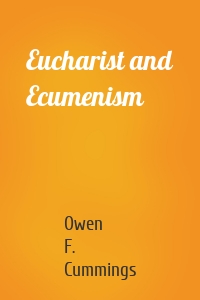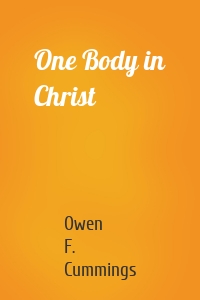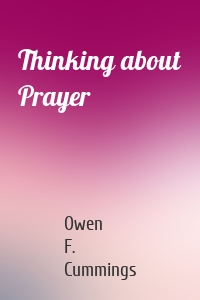Owen F. Cummings
5 кн.
John Henry Newman and His Age
Many books exist devoted to the life, thought, and writings of Blessed John Henry Newman, the premier Catholic theologian in nineteenth-century England. His influence has been enormous, perhaps especially on Vatican II (1962-65). This book is a Newman primer, and not only a primer about Newman himself, but also about his time and place in church history. It attends to the papacy during his lifetime, his companions and friends, some of his peers at Oxford University, the First Vatican Council...
| Автор | Owen F. Cummings |
Eucharist and Ecumenism
Most Christians worship on a regular basis on the Lord's Day. They have done so from the beginning, and their worship has centered on the Eucharist, following Jesus's words, «Do this in remembrance of me.» Over the two millennia of the Christian tradition there have been shifts of emphasis and understanding about the Eucharist. This book attempts to point out, by providing accessible accounts of both liturgies and liturgists across the centuries and traditions, just how much different...
| Автор | Owen F. Cummings |
Thinking God
The last decade or so has seen many books from what might be called «the new atheists.» One thinks, for example, of Richard Dawkins or Christopher Hitchens. They have captured the interest of the general reading public and have sold well. Often, however, they have loaded the dice against Christian belief in a most unfair fashion. Arguments and issues have been summarily dismissed after the most cursory of treatments. Thinking God, written by a philosopher and a theologian, father and son,...
| Автор | Owen F. Cummings |
One Body in Christ
Many feel that work for Christian unity or ecumenism is not especially urgent or important in the complexities of our contemporary world. So many different issues demand the attention of committed Christians–for example, responding to global crises in which people are suffering, developing strong moral stands on a variety of moral problems and challenges, etc. Such issues must remain of major importance to Christians. However, Christians form the one Body of Christ. If that Body continues to...
| Автор | Owen F. Cummings |
Thinking about Prayer
Many people think of prayer and worship in terms that are too narrow. Sometimes they also entertain presuppositions about prayer and worship that need to be expanded and critiqued and challenged to make them more mature and informed. This book seeks to address these issues. It is an invitation to engage with prayer and worship in ways that enlarge our capacity to think about, address, and encounter God through liturgy and theology, the arts and poetry, as well as basic critical thinking.
| Автор | Owen F. Cummings |






